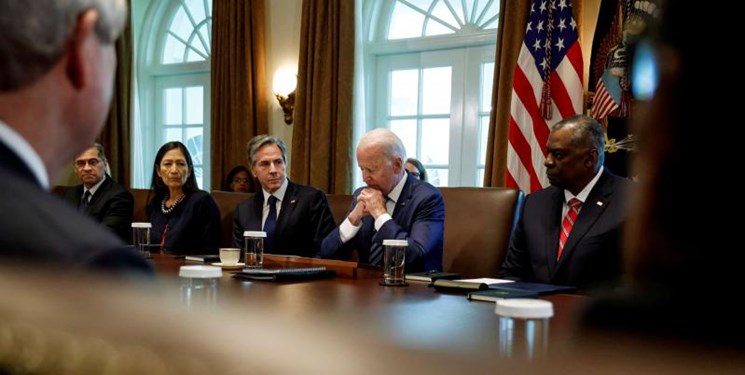Hassan Hanizadeh told the Strategic Council on Foreign Relations that Britain and France, as two European colonial powers, reduced their spheres of influence in Southeast, West Asia and Africa and moved towards rebuilding their national economies.
“They believe that a young offensive power called the United States, which has been present on the world stage since the Second World War, can provide a good shield for European countries”, he said, adding that in the final years of the Second World War, the United States carried out a nuclear attack on the two major cities of Hiroshima and Nagasaki, Japan, effectively sending the message to the world that the United States would be in charge of major international policy.
Hanizadeh said that the former Soviet Union after the Second World War rebuilt its military power to lead the Eastern world and influence global variables, as well as enter US and European spheres of influence.
He added that from then on, the rivalry between the two poles of communism and Western capitalism began, in the light of which the components of national security in large countries, including the United States, the former Soviet Union and Europe, changed.
“The Marshall Plan to reduce Soviet spheres of influence in Western and Eastern Europe helped rebuild the economies of Western nations affected by the devastation of the Second World War. But there was also a concern for the United States and Europe, which was the increase in military power and the growing influence of the former Soviet Union in the Arab and Islamic countries, which reduced American influence in the East”, he said, adding that from 1948, at the same time as the Marshall Plan, competition for the expansion of the geographical sphere of influence of the two great poles of the East and the West, the Soviet Union and the United States, intensified, leading to a new polarization in the world.
According to Hanizadeh, since then, and specifically since 1950, the US Congress has approved the allocation of 100 billion dollars annually to 16 US intelligence agencies within the Pentagon’s annual budget to counter the influence of communism in the world and in the West.
He said that the United States spent a total of 4 trillion dollars, from 1950 to 1990, when the Soviet Union collapsed, adding that it is natural that the components of the US national security threat changed during this 40-year period, and the US focus on weakening the former Soviet Union’s position in the world became one of the components of the national security threat.
He said that after the collapse of the Soviet Union, two completely different poles emerged in two separate areas on the world stage, influencing the components of the defined national security threat to the United States.
“Meanwhile, the rise of China to dominate world markets and the emergence of the Islamic Republic of Iran, as an ideological country that opposes the influential global Zionism and American hegemony, changed the view of the United States and the West on the concept of national security threat.”
Hanizadeh said that over the past two decades, as Vladimir Putin emerged as Russia’s new leader in the international arena, concerns in the United States and the West have grown about the re-establishment of a new Russian power.
“Putin, who dreamed of rebuilding the Russian Empire, quickly turned Russia into an influential world power”.
According to him, the active presence of Russian troops in Syria over the past decade is a clear indication of Putin’s goals for expanding Russian sphere of influence.
Asked about the role of Iran, he said Iran also emerged as a power in the West Asian region after the war imposed by the former Baathist regime in Iraq, which led to a change in the region’s political chess in favor of Islamic nations.
He said although China has significant nuclear power, it is a serious economic rival to the United States and Europe; because China’s practical domination of commodity-based markets reduced the dollar’s influence in world markets.
“Three different powers, namely Russia’s military power, China’s economic power, and Iran’s influential ideological power, prompted the United States and the West to draw a new roadmap for reducing the sphere of influence of these three different powers.”
The use of sanctions, the creation of a negative political and media atmosphere, the incitement of peripheral countries, the organization of social uprisings and the formation of regional NATO are considered part of US and Western policy against these three powers, he said referring to the Western efforts to contain Iran, Russia and China.
Hanizadeh added that Taiwan’s incitement against China, NATO’s influence in Ukraine that led to the war between Russia and that country, as well as the crisis in Yemen, Syria, Iraq and Lebanon as areas of Iranian influence, are part of US policy in the region.
He said that the United States and the West will therefore make every effort to influence public opinion in order to weaken the power of Russia, Iran and China as centers of threat to the West, and in this regard, it will make good use of its allies in the region to counter it.










0 Comments